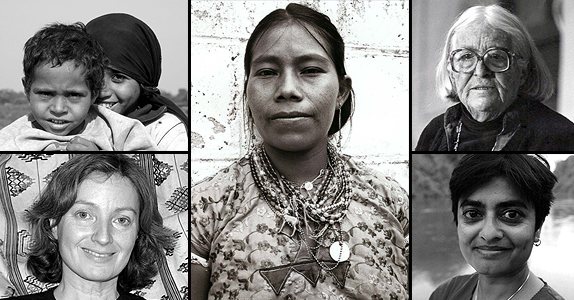
Those who know me know that March 8th, International Women’s Day is, of all the year’s holidays, the one that most deeply claims my attention and my heart. This began in the 1970s, when I lived in Cuba and the date was widely celebrated. For years now, I’ve written an open letter—sent to the women I know, and also to the men I believe are truly concerned with women’s rights.
This year, as I sat down to compose my letter, I happened to glance at the front page of the International New York Times. Three headlines grabbed my attention. The first is about Germany just having passed a law requiring 30% of corporate board members to be female. The article emphasizes the measure’s potential to “substantially alter the landscape of corporate governance . . . and have repercussions far beyond Germany’s borders.”
The second describes a mob of thousands storming a jail in the northeastern Indian city of Dimapur, seizing a prisoner accused of rape, parading him through the streets and beating him to death before the police could stop them. Violent crimes against women are on the rise everywhere and notably frequent in nations where inequality is woven into the fabric of daily life and challenges to that inequality scant. Most recent news stories about rape in India have detailed the act itself, so this one was unusual in that it noted a massive popular attack on the rapist. While we continue to celebrate the bravery and commitment of Pakistani teenager Malala Yousafza, in her ongoing campaign for girls to study, millions of women everywhere face poverty, illiteracy, abuse and violent crime.
The third article chastised Pope Francis, despite his overall reforms, for proving “strikingly tone-deaf toward the sensitivities and needs of women.” An organization called Voices of Faith will celebrate International Women’s Day this year by bringing women from various walks of life together to discuss their issues at a seminar inside Vatican City. The writer points out that the fact the seminar is taking place within Vatican walls is particularly significant.
Each of these headlines has a backstory, and all are complicated. None are simple victories for the half of humanity that, as an outdated revolutionary leader once so eloquently said, hold up half the sky. What the stories do tell us is that across cultures and economic strata, women’s lives urgently need change.
Worldwide, only 79.7 percent of females compared with 88.6 of males can read and write. Such overall statistics hide gross geographic differences, of course. The rates are 12.6 to 43.1 in Afghanistan while in the United States they are 99 and in Cuba 99.8 across the board. In the United States women still earn only 77 percent of what men earn.
There are many other areas in which women suffer disproportionally. I’ll just speak for a moment about the US. If we leave or are forced out of the labor force, our possibility of contributing to pension funds or saving money for an increasingly extended old age is palpably reduced. Even if we are fortunate enough to have health insurance that includes medication, birth control pills may not be covered while pills for erectile dysfunction are. Female incarceration in this country has risen dramatically in recent years; the number of women in prison increased fivefold over men in the past two decades alone. But the area where gender inequality is most evident, perhaps, is the “sandwich generation,” in which the middle-aged must care for their elderly parents and dependent children.
The 2008 recession, the effects of which are still very much with us, has meant many families must accept the return to the home of adult children who cannot find work even as they must care for their own parents who suffer from dementia and other ills. The latest census figures show that the poverty gap between men and women continues to grow as we age; by the time we reach 65, almost twice as many women as men live in poverty. Our social priorities leave us living longer but unable to resolve the problems the additional years bestow.
Halfway into the 21st century’s second decade, we have a few women presidents, members of parliamentary bodies, generals, bishops, and even corporate CEOs. Token or trend, they make their mark. But perhaps we should be paying more attention to our women poets, painters, musicians, scientists and philosophers.
On this International Women’s Day I think of the Indian, Black and Latina women organizing against poverty throughout the United States. The tireless women of Africa still fighting genital mutilation and nursing victims of the terrible fistulas so often afflicting those who have been cut. The undocumented mothers and children being held and abused in detention centers along our country’s southern border. The women within a range of religious denominations struggling daily against privileged male hierarchies. The Chilean mothers who, in decreasing numbers as each year passes, still walk Chile’s Atacama desert searching for the bones of their disappeared children. Women and girls who continue to be victimized by incest, domestic abuse and rape; who suffer from low self-esteem and eating disorders, who cut themselves or otherwise try to compensate their ongoing pain. Every woman who stops keeping secrets that enslave her and finds the voice that sets her free.
I think of every girl who wakes up hungry, and every boy who does. The women of Palestine, Iraq, Syria, Guatemala, Mexico, Uruguay, Cuba, China, Afghanistan: the poor and disenfranchised women of the world. I salute Malala and others whose names and faces we know. But I feel the desperation and rage, the sorrow and small victories, of nameless women everywhere: still struggling in a thousand large and small ways for that elusive condition called equality.
(Photos by Margaret Randall)



Responses to “International Women’s Day 2015”